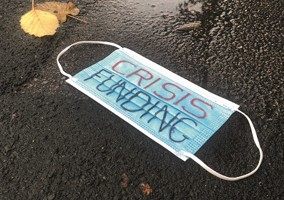Has new regulation stopped greenwashing?
Despite action by regulators, greenwashing continues. Investors’ desire to make a positive difference has driven huge inflows into strategies that make sustainability claims. However, mounting evidence that a number of “sustainable” strategies were not as green as they seemed has galvanised regulators to act.
The European Union’s Sustainable Finance Disclosure Regulation (SFDR) was introduced in 2019 to impose tougher disclosure requirements, with the aim of giving investors greater insight into the sustainability-related impact of their investments.
Asset managers complying with SFDR are repositioning their products as “promoting environmental or social characteristics” in order to meet the requirements of SFDR Articles 8 and 9 and retain their sustainability badges. However, given that SFDR permits a high degree of flexibility in defining what “promoting” sustainability means, there is still potential for misunderstanding.
Rather than trusting to high-level descriptions of investment approaches, clients should be prepared to dig deeper. With this in mind, we have put together a shortlist of seven questions to help investors sort the green from the greenwashed.
What can investors do?
First, check if your asset manager is a signatory of the UN Principles for Responsible Investment (UNPRI). Being a UNPRI signatory involves an extensive application and assessment process and ongoing commitment to UNPRI reporting. Signatory status is not a given, and asset managers that fail to uphold UNPRI standards may lose signatory status after a two-year watch period. The minimum requirements for UNPRI signatory status are: having a responsible investment policy that sets out an overall environmental, social and governance (ESG) approach or guidelines; providing evidence that the policy covers more than 50% of assets under management; and evidence of senior management oversight and staff implementation of responsible investment.
Second, check if your asset manager has published a UK Stewardship Code Statement. Responsible companies create durable economic value not only for investors but also for society. If your asset manager is a signatory to the Code, then this insight is more likely to be central to their investment approach. It sets high stewardship standards for asset managers. It defines stewardship as the responsible allocation, management and oversight of capital to create long-term value for clients and beneficiaries, leading to sustainable benefits for the economy, the environment and society. Signatories publish an annual statement showing the extent to which they have implemented these principles.
What can asset managers do to catalyse positive change?
Having an overall approach or guidelines for ESG is one thing, but integrating ESG into an investment process in a way that goes beyond simply excluding controversial companies requires much more detailed work. Sarasin & Partners has fully integrated ESG in its investment processes: from idea generation in long-term thematic trends such as climate change and automation, to stock selection that incorporates bottom-up ESG and climate impact analysis and in portfolio construction, where we decide our engagement plans. We outline how ESG is integrated into our investment process in our 2020 UK Stewardship Code Report (see link below).
Active engagement is also essential. Investors have important rights, but they also have responsibilities to promote sustainable business practices and hold management responsible through thoughtful voting and engagement company management. This has a pivotal role to play in improving sustainable business practices and asset managers should be prepared to dedicate resources to ongoing engagements that may take years to play out.
Policy outreach is another important way to drive change. Where there is scope for a ripple effect, investors can, and should, make public calls for change and build coalitions with like-minded stakeholders through initiatives such as the Net Zero Asset Managers’ Commitment.
What else can be done?
Vote actively to encourage improvement in corporate behaviour. Shareholders’ votes are a powerful tool that can be used to change corporate behaviour for the better. We believe that asset managers should vote actively against harmful corporate practices. For example, we vote against company directors where we see inadequate action to align strategies and operations with a 1.5°C cap on global temperature rises. We are also one of only two asset managers that vote against auditors who fail to call out unsustainable company accounts.
Furthermore, asset managers should regularly publish their voting record. This promotes progress and corporate accountability by publicly acknowledging best practice and placing the spotlight on poor performers. It also ensures that clients can see whether their asset manager is acting in a way that aligns with their corporate governance and investment policies.
For more information see:
- Sarasin UK Stewardship Code 2020
- How we vote for you
- Securing tomorrow with the Net Zero-Asset-Managers commitment
Alexander True is Business Partner at Sarasin & Partners
What we do
Sarasin & Partners LLP is a London-based asset manager that manages £21bn on behalf of charities, institutions, intermediaries, pension funds and private clients, from the UK and around the world. Consistent with a longer-term approach is a commitment to stewardship principles. Our goal is to grow and protect our clients’ capital in a way that is aligned with a sustainable society. We achieve this through a global thematic approach to investment that embeds rigorous ESG analysis; a proactive ownership discipline which promotes responsible behaviour; and a commitment to engage in the wider market place to press for changes that support responsible growth.
Fast facts
- Sarasin manages £9.1bn for over 475 charity and not-for-profit clients
- Charities represent nearly 45% of total business
- The Climate Active Endowments Strategy has been adopted by c£1 bn of charity assets, £500m reside in the Sarasin Climate Active Endowment CAIF
*All figures as at 31 December 2021
Related articles











